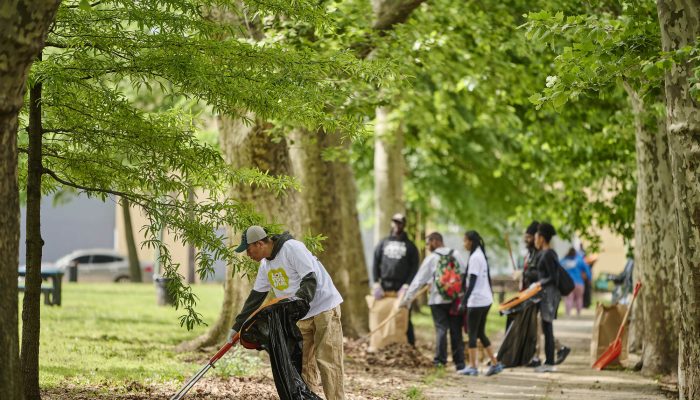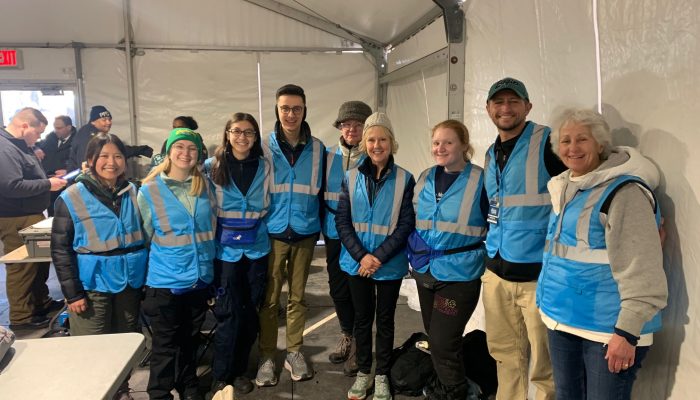Insects can put a damper on almost any outdoor activity. But two or three bites from pesky mosquitoes can signal the end of that summertime picnic or volleyball game as victims quickly head indoors for shelter from the swarm.
Some mosquito bites can leave people with red, itchy, irritated skin. Others can leave victims with far more serious health problems. In Philadelphia, mosquitoes sometimes carry and transmit West Nile virus, which can lead to fever or severe neurologic problems in some people who become infected. Anyone experiencing symptoms of severe West Nile virus, which include fever, headache, neck stiffness, and disorientation, should seek medical treatment immediately.
To help combat West Nile virus, the Philadelphia Department of Public Health regularly treats for mosquitoes and encourages residents to take precautions and Fight the Bite.
Battling mosquitoes at their source
Each week, the health department sprays for larval mosquitoes in June, July and August when mosquitos are most active. Because mosquitoes lay their eggs directly on water or in places near water that are wet or damp, these treatments help control mosquito breeding where water is contained or collected outdoors in things like buckets, garbage cans and stormwater inlets. The health department typically sprays for larval mosquitoes early in the morning to limit exposures, and disruption to traffic and outdoor activities
Protect yourself
The best way to protect yourself from mosquitos is to apply an insect repellent to exposed skin just before heading outdoors. Use insect repellent that is registered with the U.S. Environmental Protection Agency. Apply sunscreen first and then repellent and consult with a pediatrician about the use of repellent on children. Repellent is not recommended for children under the age of two months. Also, if it’s not too hot outside, wear long-sleeved shirts, long pants and socks for extra protection. Peak biting hours for most mosquitoes are from dusk to dawn so take extra care to use repellent and protective clothing in evenings and early mornings. During these times, try to avoid as many outdoor activities as possible.
Mosquito-proof your home and neighborhood
There are several steps you can take to minimize your risk and keep your yard and home mosquito-free. Drain or remove sources of standing water weekly in ornamental items like birdbaths, fountains and ponds that are not equipped with fish. This helps reduce the number of places where mosquitoes can lay their eggs and breed. Remove or store anything that can collect water, such as unused tires, flowerpots, and buckets, and turn over things like kiddie pools and wheelbarrows when not in use.
If you have a pool, ensure that it is properly filtered and chemically treated so that it stays clean. Also, make sure gutters are free of debris and keep an eye out for trash or containers that might be out of the way or hard to see. Remember, anything that holds water can breed mosquitoes. To prevent mosquitoes from getting into your home, keep and repair screens on windows and doors. They should be well-fitted to keep mosquitoes outside. Keep in mind that any overgrown and green areas may provide resting space for adult mosquitoes. If you need to report mosquito infestations in Philadelphia, call 215-685-9000.
Be safe wherever you go
When traveling abroad, be sure to speak with your doctor beforehand about the risk of other mosquito-borne illnesses, such as Dengue, Zika or Chikungunya viruses, that may lie in wait at your travel destination. You’ll want to take similar precautions there, to avoid mosquito bites.




